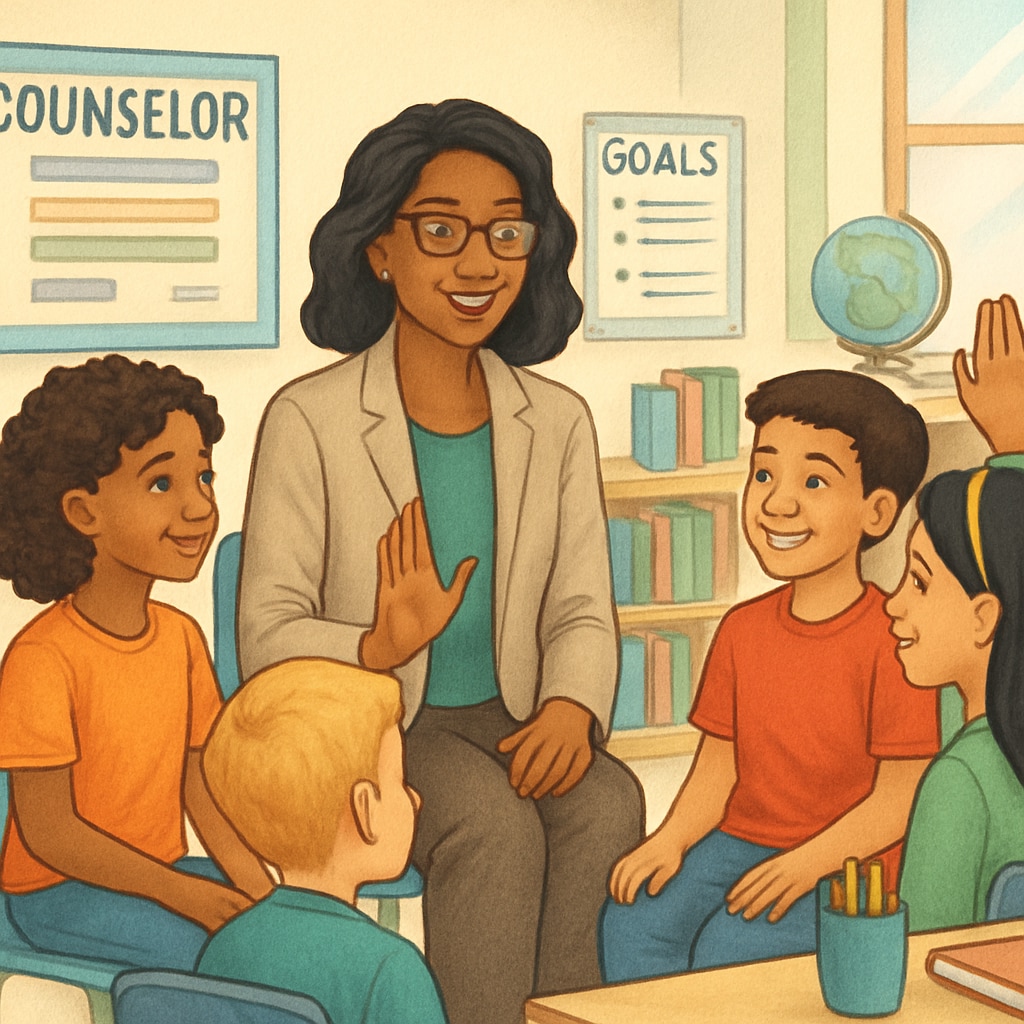School counselors play a pivotal role in the K12 education system, serving as bridges between students, teachers, and parents while addressing academic, social, and emotional needs. However, when graduate students embark on assignments that require interviews or case studies involving school counselors, they often face significant challenges. These challenges highlight the need to develop stronger connections between academic researchers and educational practitioners. This article explores the importance of school counselors, the difficulties in locating interview subjects, and actionable strategies to foster meaningful collaboration.
The Crucial Role of School Counselors in K12 Education
School counselors are essential contributors to the success of K12 education systems. Their responsibilities range from guiding students in academic planning to addressing mental health concerns and fostering a supportive school environment. According to the Britannica article on school counseling, counselors are uniquely positioned to identify systemic challenges while implementing solutions that benefit the entire school community.
These professionals often act as the first point of contact for students experiencing difficulties. For example, they may work with students struggling academically, assist those navigating social challenges, or provide referrals for mental health support. Their dual focus on individual needs and systemic improvement makes them invaluable to both education practices and research studies.

Challenges Faced by Graduate Students in Locating Interview Subjects
For graduate students conducting academic research related to school counseling, finding suitable interview subjects can be daunting. Common obstacles include confidentiality concerns, limited availability of counselors due to their demanding schedules, and institutional restrictions on external research. This creates a barrier that not only impacts the researcher but also limits the dissemination of valuable insights gained from studying real-world educational practices.
Moreover, the gap between academic research and practical application in schools often exacerbates these difficulties. While researchers aim to contribute to the field through empirical studies, school counselors may perceive these efforts as disconnected from the realities of their daily work. As a result, researchers may struggle to access counselors who are willing and able to participate in interviews.

Building Bridges: Strategies for Collaboration
To overcome these challenges and foster collaboration between researchers and practitioners, several strategies can be employed:
- Establishing Partnerships: Universities and schools can create formal partnerships to support research activities. This includes drafting agreements that outline the scope, purpose, and benefits of research projects for both parties.
- Providing Value to Participants: Researchers should emphasize the practical benefits of their studies, such as providing actionable recommendations or insights that school counselors can use in their work.
- Streamlining Processes: Academic institutions can simplify the process for obtaining permissions and approvals, making it easier for graduate students to connect with school staff.
- Leveraging Technology: Online platforms and virtual interviews can help mitigate scheduling conflicts and geographical barriers.
By implementing these strategies, researchers not only improve their chances of securing interviews but also strengthen the connection between academic inquiry and educational practice.
The Importance of Mutual Understanding
Ultimately, bridging the gap between school counselors and educational researchers requires mutual understanding and respect for each other’s roles. Counselors need to see the value in contributing to research that could inform policy and practice, while researchers must prioritize the ethical and practical considerations involved in studying real-world education settings.
As a result, fostering collaboration can lead to enriched academic studies and improved educational outcomes. For example, a study on counseling strategies for addressing student anxiety could yield insights that benefit counselors, researchers, and students alike.
In addition, as schools increasingly focus on evidence-based practices, the collaboration between researchers and counselors becomes even more critical. By working together, both groups can ensure that educational strategies are grounded in robust research while remaining practical and effective in real-world settings.
Conclusion: The role of school counselors in the K12 education system is indispensable, and their involvement in academic research can enhance the understanding and application of effective educational strategies. For graduate students facing challenges in conducting interviews, fostering meaningful collaboration and creating pathways for mutual benefit can pave the way for impactful research. By bridging the gap between practice and research, we can build a stronger foundation for the future of education.


